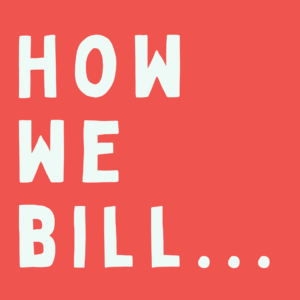Last week, I posted an article about the importance of “partnership agreements”, and why you and your business partner(s) absolutely need one. A few days after posting the article, one of my clients who just signed a simple shareholder agreement (“SHA“) chatted me asking about the difference between a SHA and a joint venture agreement (“JVA“).
This is a really great question, because the two often get used interchangeably in Panama even among fairly sophisticated parties. And as a practical matter, they can and often do serve a similar purpose. In fact, many privately held companies in Panama will include provisions in their SHA that could have been contained in a JVA.
But there is a difference between joint venture agreement (“JVA”) and a shareholder agreement (“SHA”). This article will give a quick run-down.
The Joint Venture Agreement
To understand the difference between a JVA and a SHA, keep in mind that a partnership does not necessarily require incorporation. In fact, people have been going into business together since long before our current concept of a corporation even existed. Even today, in a relationship-driven society like Panama, there are plenty of (mostly) smaller business partnerships operating without creating a sociedad anónima or other type of corporation around the business venture.
A Small Business Example
Let’s imagine that my best friend and I have decided to go into business together selling handmade jewelry. We don’t have to set up a corporation do that. Look at it this way – the current cost of maintaining a sociedad anónima even with relatively minimal business activity is around US$850 per year. You can imagine that we may not want to take on an expense like this for our small handmade jewelry business until we see that the business has legs.
However, our small handmade jewelry business partnership can still benefit from an agreement if we have different roles and each have responsibilities in the partnership:
- Perhaps my talented friend is going to make the jewelry, and I am going to manage the marketing and sales.
- Maybe we each have separate responsibilities when it comes to setting up stands at local artisan markets and fairs (she brings the jewelry, and I bring a bottle of wine in an innocent looking thermos).
- It is also conceivable that one partner may provide more funding than the other to buy the materials and launch the brand. Meanwhile, the other may commit to dedicating more time to the business.
Obviously, my business partner and I should discuss these details at the outset of our jewelry-making business venture. And we can formalize our mutual commitments to one another in a joint venture agreement (“JVA”).
By the way, the JVA does not have to be long or super complicated. The contract doesn’t even have to be drafted in Spanish to be valid. So, even for a small business venture without a company, there is no practical reason not to sign a JVA.
The Shareholder Agreement
But when partners do decide to incorporate, they should sign a shareholder agreement (“SHA”). This a corporate governance document that sets out the relationship between the shareholders and also the corporation itself. A SHA will generally provide the following:
- Composition of the company’s board of directors (“BOD”) posed, who appoints the directors and how to change the BOD composition.
- The company’s decision-making process when it comes to day-to-day management. But also for bigger decisions. For example, a drastic change in the company’s scope of business activity. Also, taking on major debts, making a signficant investment or selling the company’s assets.
- And it also usually provides some protections to the shareholders in areas where their interest may not be aligned. Let’s say one partner wants to sell of the company. Or what if someone wants to bring on of a new partner? Or let’s think about conflict of interest scenarios, such as a transaction between the company and one of the shareholders..
And in the absence of a corporate entity, decision-making processes and protection of the parties may be just as relevant. This is why I say that there is a lot of overlap between the JVA and the SHA. The main difference is that the SHA involves a corporate entity, and so it must cover some very specific considerations.
What About the Pacto Social?
Every sociedad anónima in Panama has a set of Articles of Incorporation (called the “Pacto Social”). This document is inscribed in the Public Registry when the company is created. The Pacto Social will usually include some of the same provisions that otherwise may appear in a separate SHA,. However, consider these 2 things when deciding whether you also need a separate partnership agreement:
- The Pacto Social is a public document. Anyone in the world can log into Panama’s Public Registry and review this document in detail.
- The Pacto Social is often pretty generic. The attorney who created your company probably drafted it. Unless the partners did a session to discuss the partnership in detail, the Pacto Social probably contains generic provisions.
So, most partners should consider signing a separate partnership agreement with a scope that is appropriate to the business venture.
Bottom Line?
As I said, many private companies in Panama will simply include provisions in a SHA that could appear in a JVA.
And in my opinion, the existence of the binding agreement is much more important than the title of the agreement. This is why in my previous article I just used the more general term “partnership agreement”.
If you have are ready to create a joint venture agreement (“JVA”) or a shareholder agreement (“SHA”) for your partnership, you can write to me at info@theindependentlawyer.com.
And if you want to read more about the kinds of provisions that usually go into these agreements, then check out this article:
Provisions to Include in your Partnership Agreement.





